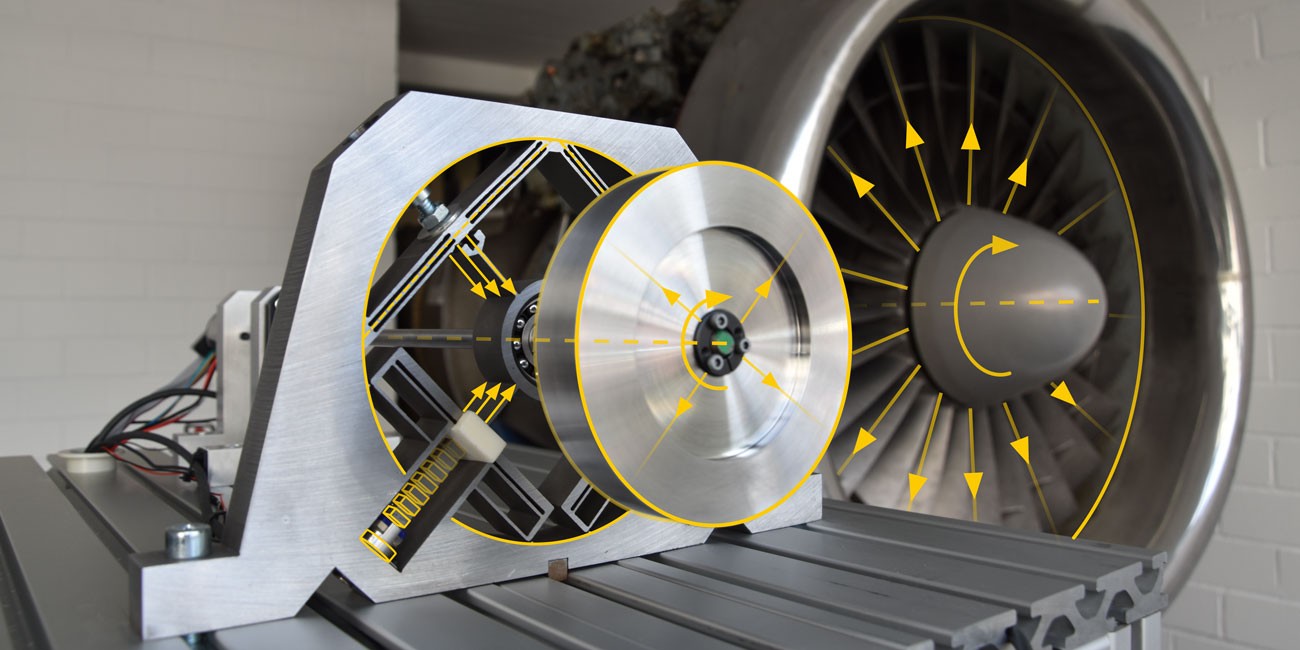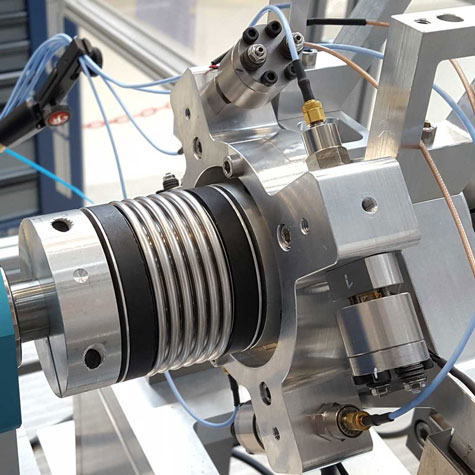The consideration of active measures already at the beginning of the product development phase does not only have the potential of replacing passive measures, but additionally results in the possibility of generating an improved overall system behavior. This can be reflected on costs, weight and efficiency: on the one hand passive measures are discarded and on the other hand tasks can be effectively fulfilled by active systems, thus allowing for reduced requirements for the design of the basic passive system.
The knowledge about the basic passive system is the most important factor for the development of an active system, when aiming for an optimal solution of a specific problem. That is why the research group Actuated Systems focuses on fundamental research regarding system theory knowledge besides their activities on active measures. This covers for example the description of vibrations in gearboxes and rotors, and identifying excitation sources and their influence on fatigue or failure. Throughout the consideration of the gained overall system knowledge within the design process and the control of an actuated system, a more efficient and performant system can be obtained compared to using standard methods.






